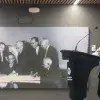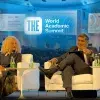The motivation behind the 2024 edition of “Voices of Human Dignity” was to make visible how each of us is unique, thanks to our own stories, culture, beliefs, and experiences.
These were the words of Inés Sáenz, Vice President of Inclusion, Social Impact, and Sustainability at the Tec, during this event organized by the institution’s Center for the Recognition of Human Dignity.
The “Voices of Human Dignity” dialogues and listening sessions were aimed at promoting three social issues: recognizing diversity, collaborating on achieving equity, and promoting inclusion.
Therefore, conversations were held that delved into experiences such as:
- Support for Displaced People
- Collaboration Networks for Promoting Gender Equity
- Promoting Cybersecurity for Everyone
- Young People’s Sense of Belonging
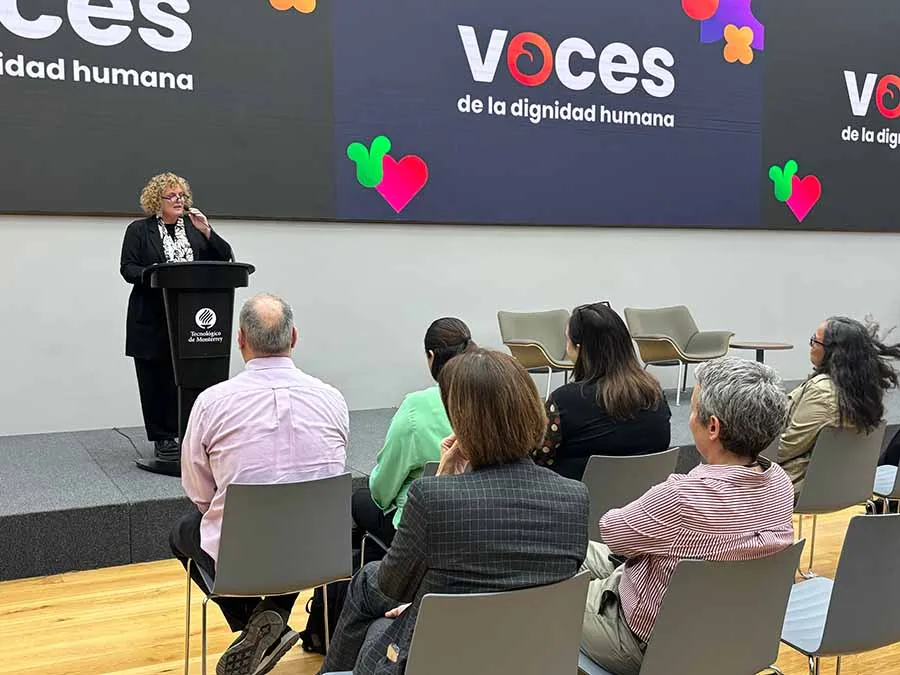
“I celebrate the existence of ‘Voices of Human Dignity’: It’s an opportunity to develop our listening and communication skills. In the midst of this reality we’re living in, which is so volatile and uncertain, this event is an oasis for taking a break, listening, and becoming aware of the challenges we’re facing,” said Sáenz.
“We wish to highlight that each of us is unique, and that this uniqueness gives us the diversity that enriches our community,” said Felisa González, Director of the Center for the Recognition of Human Dignity.
“I celebrate the existence of Voices of Human Dignity: It’s an opportunity to develop our listening and communication skills,” Inés Sáenz, Vice President of Inclusion, Social Impact, and Sustainability.
Building Peace: A Path for Displaced People
One global issue is the forced displacement of people, those who flee their place of origin due to war or situations that put them at risk.
José Luis Loera, founder of Casa Refugiados, addressed this issue experienced by thousands of people around the world.
“Many academics are talking about a social breakdown in a world that seems to be increasingly fractured when it comes to coexistence in the face of the challenge of inclusion. That’s why we’re asking ourselves: Is it possible to build peace with people who have been displaced?” he said.
He explained that it’s sometimes assumed that displaced people are of a certain race, that they’ve always existed, but the reality is that it can happen to anyone.
“We’re striving to address this challenge at the foundation. It’s important to us to start from a human perspective, which is difficult to retain in the face of any phenomenon. We mustn’t fall into stereotypes or labels that dehumanize others, especially displaced people,” he emphasized.
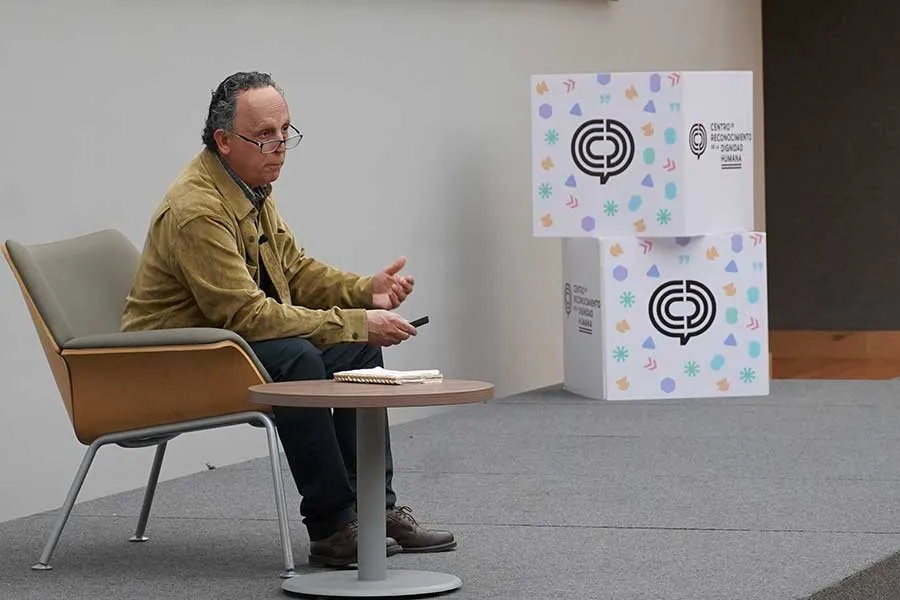
Collaboration Networks for Promoting Gender Equity
Experts on the panel ‘Women’s Networks That Are Transforming the World’ explained that it is necessary to create collaboration networks to promote gender equity in science and technology.
Participating on this panel were Adriana Rojas, Director of Networks and Students Programs at the Association of Pacific Rim Universities, and Marcela Bentín, President of the Matilda Latin American Open Chair.
Also taking part were Felisa González, Director of the Tec’s Center for the Recognition of Human Dignity; Ileana Ruiz, Director of Liaison and Training Partners at the Tec’s School of Engineering and Sciences; and moderator Ricardo Swain, Dean of the School of Engineering and Sciences.
“Investing in women leads to progress. There are more and more networks, groups, and initiatives striving for development to grow as a society in the face of increasingly complex challenges,” said Ileana Ruiz.
“Networks are where we join forces to work in empathy with each other, regardless of our gender identity,” said Adriana Rojas.
They spoke about the importance of deconstructing society to increase the visibility of women, so that they can enter the fields of science, technology, and research.
“We want to have more women and girls in science and engineering, to increase the number of women in research.
“The Matilda Chair is working towards that, towards inclusion beyond the gender you were assigned at birth or with which you identify,” said Marcela Bentín.
“We want to have more women and girls in science and engineering, to increase the number of women in research,” Marcela Bentín.
Cybersecurity: A Right for Everyone
Activist Angie Contreras gave a talk in which she addressed the topic of cybersecurity as a human right to raise awareness about the appropriate use of technology, particularly during childhood.
“We must make responsible and civic use of digital technology. Digital rights are those that allow access to technology, the right to security, privacy, disconnection, and so on.
“Digital violence is any malicious action committed through the use of information and communication technologies, as well as those acts that cause harm to intimacy, privacy, or dignity,” she explained.
She advised attendees on security measures such as constantly changing passwords, asking if any photographs can be shared, and not taking screenshots.
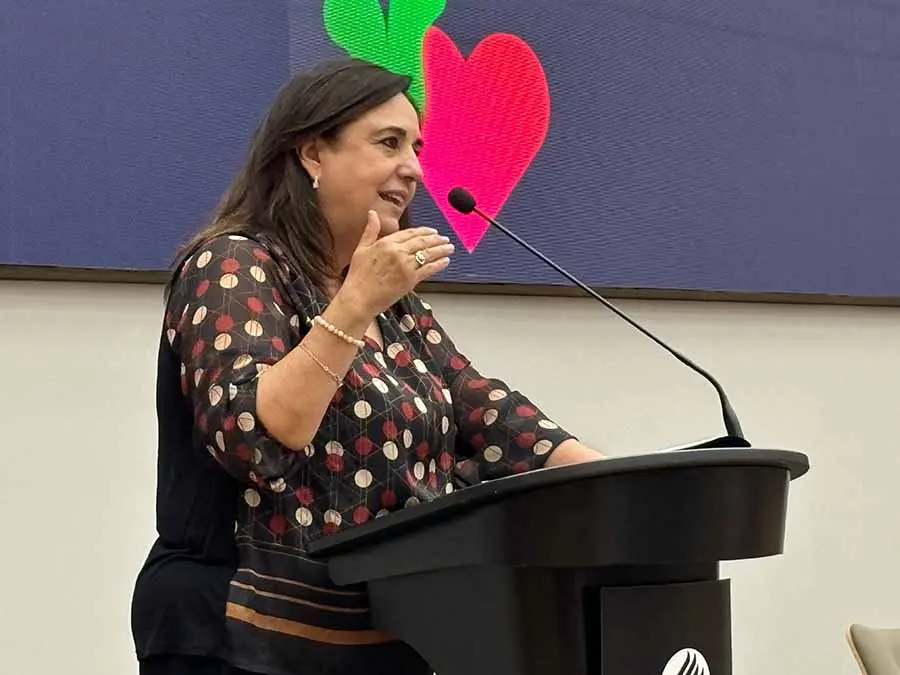
Young People’s Sense of Belonging
Voices of Human Dignity provided a space for Tec de Monterrey students to express their ideas and points of view so that they could have a say and make their opinions known.
One example of this was Aalyah García Marte, who came to Monterrey to study and formed her own support network thanks to student groups offered by the institution, even becoming president of the Tec’s Council for Regional and Foreign Associations.
Presentation of the Report on Diversity, Equity, Inclusion, and Belonging
The “2022-2023 Report on Diversity, Equity, Inclusion, and Belonging” was presented at this event. This was the report’s sixth edition.
The report addresses Tec de Monterrey’s commitment to creating a more just society, in which everyone is represented and human dignity is respected.
It compiles initiatives implemented by the institution to promote equity, diversity, inclusion, and belonging.
YOU’LL DEFINITELY ALSO WANT TO READ:




